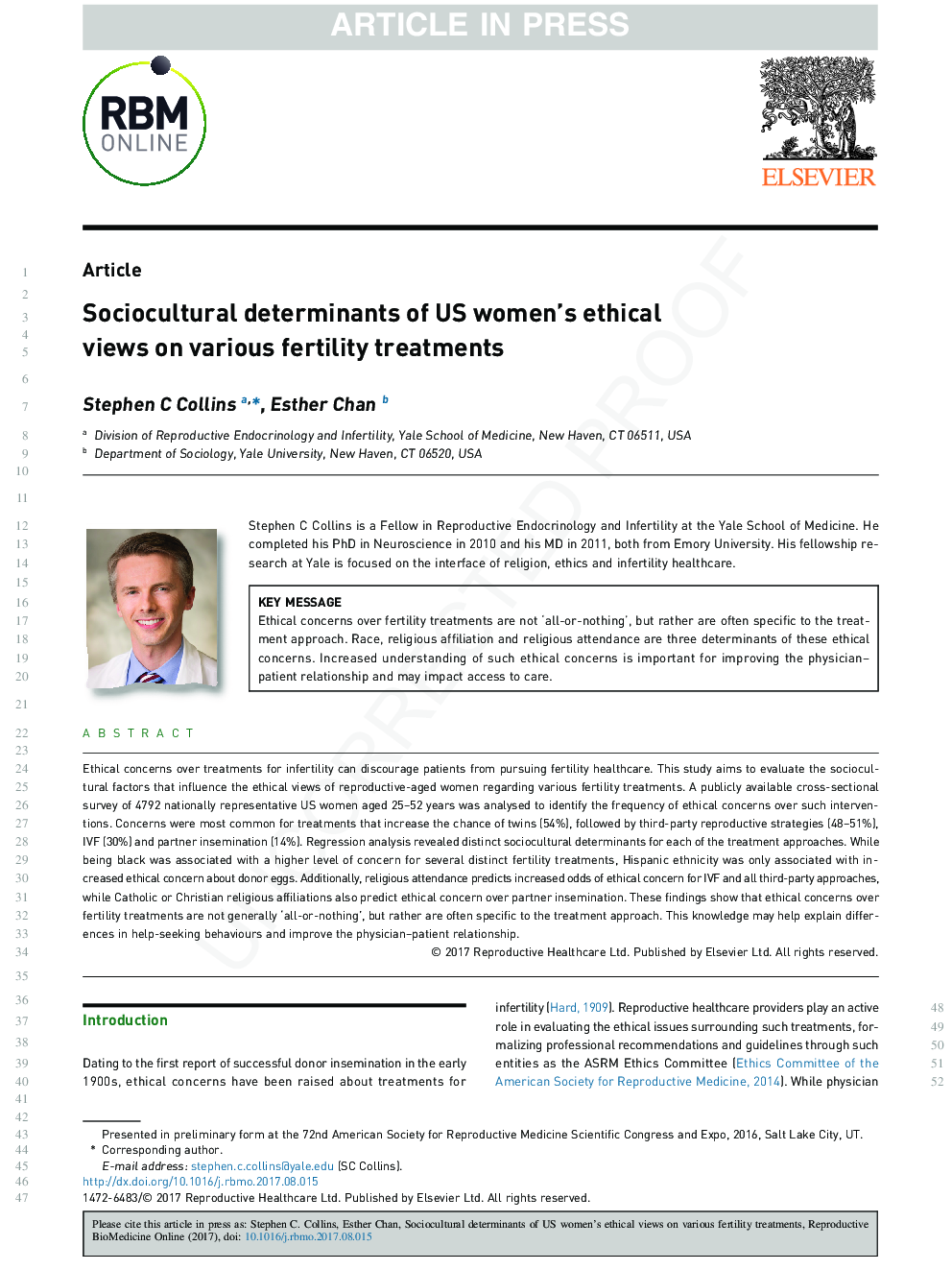| Article ID | Journal | Published Year | Pages | File Type |
|---|---|---|---|---|
| 8784118 | Reproductive BioMedicine Online | 2017 | 9 Pages |
Abstract
Ethical concerns over treatments for infertility can discourage patients from pursuing fertility healthcare. This study aims to evaluate the sociocultural factors that influence the ethical views of reproductive-aged women regarding various fertility treatments. A publicly available cross-sectional survey of 4792 nationally representative US women aged 25-52 years was analysed to identify the frequency of ethical concerns over such interventions. Concerns were most common for treatments that increase the chance of twins (54%), followed by third-party reproductive strategies (48-51%), IVF (30%) and partner insemination (14%). Regression analysis revealed distinct sociocultural determinants for each of the treatment approaches. While being black was associated with a higher level of concern for several distinct fertility treatments, Hispanic ethnicity was only associated with increased ethical concern about donor eggs. Additionally, religious attendance predicts increased odds of ethical concern for IVF and all third-party approaches, while Catholic or Christian religious affiliations also predict ethical concern over partner insemination. These findings show that ethical concerns over fertility treatments are not generally 'all-or-nothing', but rather are often specific to the treatment approach. This knowledge may help explain differences in help-seeking behaviours and improve the physician-patient relationship.
Related Topics
Health Sciences
Medicine and Dentistry
Obstetrics, Gynecology and Women's Health
Authors
Stephen C. Collins, Esther Chan,
